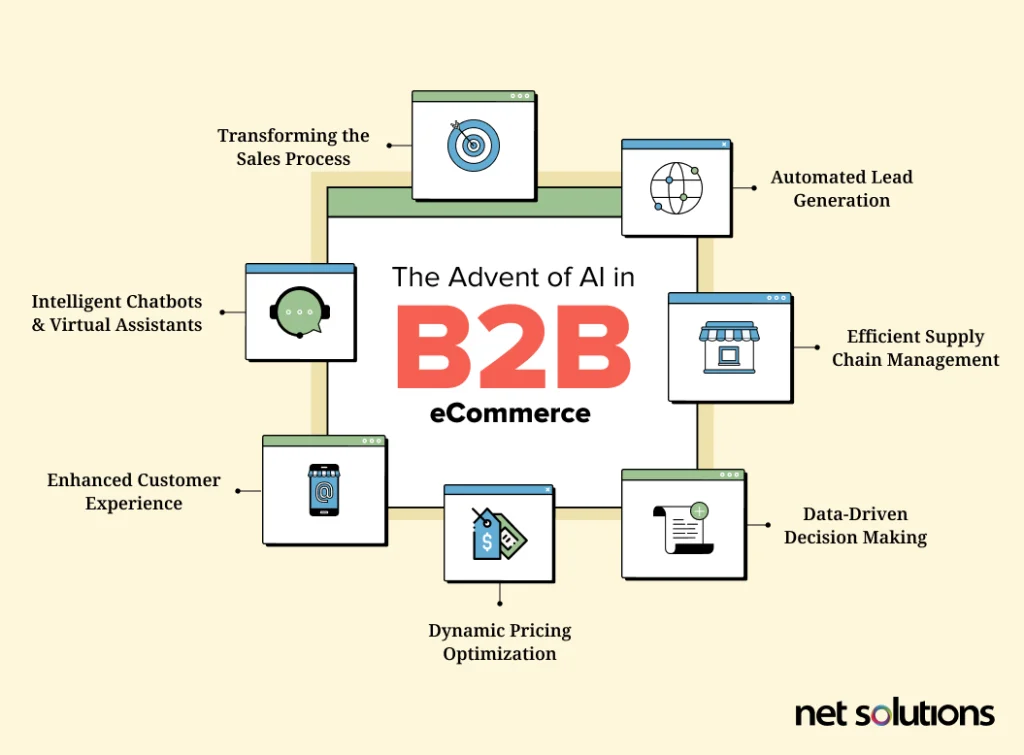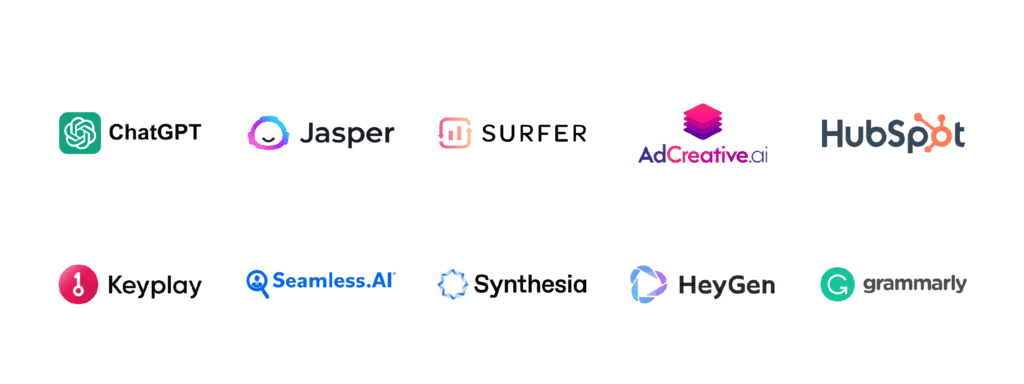The Future of B2B: Harnessing AI Automation to Drive Success
The landscape of B2B is shifting as companies increasingly transform to AI automation for calculated benefit. This transformation promises to improve performance and customer involvement with advanced technologies. Nonetheless, the integration of these devices is not without its challenges. Comprehending just how companies can browse this developing terrain will certainly be necessary for future success. What variables will determine the performance of AI in this market? The answers might redefine standard company models.
Comprehending AI Automation in B2B
As services significantly look for efficiency, comprehending AI automation in B2B ends up being crucial. Growth Systems For B2B. AI automation describes the usage of fabricated knowledge technologies to simplify and boost organization processes. In the B2B industry, this involves the assimilation of AI devices to handle jobs such as information analysis, client communications, and supply chain operations. By leveraging device learning and all-natural language handling, business can enhance accuracy, decrease human error, and speed up decision-making. Furthermore, AI automation facilitates the handling of huge quantities of information, making it possible for services to remove important insights and maximize their procedures. As organizations browse this technological landscape, a detailed grasp of AI automation's capacities will certainly equip them to remain responsive and competitive to market demands
Key Benefits of AI Automation for Services
While lots of businesses grapple with raising functional needs, AI automation presents numerous advantages that can noticeably improve their performance. One substantial benefit is efficiency; AI systems can do recurring jobs much faster and with higher precision than humans, consequently releasing and lowering mistakes up employees for more critical efforts. In addition, AI automation allows data-driven decision-making by assessing substantial datasets quickly, providing insights that educate business strategies. Expense reduction is an additional vital advantage, as automation decreases labor expenses and optimizes resource appropriation. AI can boost scalability, permitting services to adapt to market adjustments quickly. Inevitably, the combination of AI automation fosters advancement, making it possible for companies to continue to be competitive in a rapidly advancing landscape.
Transforming Client Experiences With AI
AI is reshaping consumer experiences by making it possible for customized communications and enhancing interaction. With the application of predictive analytics, businesses can anticipate client requirements and preferences, leading to much more customized services. Additionally, enhancing assistance procedures with AI technology boosts efficiency and complete satisfaction, eventually transforming the total client trip.
Customized Communications and Involvement

Predictive Analytics Application
As businesses increasingly seek to boost customer experiences, applying anticipating analytics has actually emerged as a critical method in the B2B field. By leveraging data-driven understandings, organizations can anticipate customer demands and preferences, enabling them to customize their offerings better. Predictive analytics makes use of historical data and sophisticated formulas to forecast future actions, allowing companies to recognize prospective challenges and chances. This proactive technique not only enhances client fulfillment however also promotes commitment by supplying appropriate and timely remedies. Furthermore, anticipating analytics aids in resource appropriation, ensuring that advertising initiatives are focused on high-value prospects. Eventually, the assimilation of anticipating analytics furnishes B2B companies with the devices essential to change client communications and drive long-lasting success in a significantly competitive landscape.
Simplifying Support Procedures
Enhancing consumer experiences in the B2B sector expands past predictive analytics; enhancing assistance procedures plays an essential function. By incorporating AI-driven solutions, businesses can automate regular questions and enhance feedback times, bring about heightened customer fulfillment. Chatbots and online aides supply 24/7 support, attending to customer needs promptly and reducing the worry on human agents. This automation permits groups to focus on complicated concerns, fostering even more significant communications. AI devices can assess assistance data to identify patterns and areas for enhancement, ensuring continuous enhancement of solution quality. As companies adopt these innovations, they place themselves as receptive and customer-centric, inevitably driving loyalty and company development in a progressively affordable landscape
Enhancing Workflow and Processes
Simplifying procedures and procedures in B2B atmospheres is vital for enhancing total performance. By enhancing process efficiency and automating regular jobs, companies can reduce manual mistakes and maximize beneficial resources. This change not just improves productivity however additionally makes it possible for teams to concentrate on strategic initiatives that drive development.
Enhancing Process Performance
Maximizing operations effectiveness is crucial for services looking for to lower operational costs and improve productivity. By assessing existing procedures, organizations can determine bottlenecks and redundancies that hinder performance. Implementing structured treatments enhances communication and partnership among groups, making certain that tasks are completed much more promptly. Using data-driven insights makes it possible for firms to make informed choices that refine operations additionally. Additionally, embracing integrated innovations can facilitate smooth information flow, reducing the risk of hold-ups and mistakes. As companies welcome these adjustments, they not just promote a much more nimble workplace however additionally place themselves to react promptly to market needs. Inevitably, concentrating on workflow efficiency allows organizations to allocate resources properly, driving lasting success in an increasingly affordable landscape.
Automating Routine Tasks
Several organizations are progressively turning to automation to deal with routine tasks, acknowledging its prospective to substantially improve functional performance. By deploying AI-driven solutions, companies can improve recurring tasks such as information entrance, invoice processing, and consumer queries. This change not just lowers human error however additionally frees up important worker time, permitting team to concentrate on value-added jobs and tactical initiatives. In addition, automation can improve feedback times and solution consistency, causing enhanced consumer complete satisfaction. As companies navigate a competitive landscape, leveraging automation for routine tasks comes to be vital for preserving and optimizing process dexterity. Eventually, this approach cultivates technology and drives growth, positioning organizations for lasting success in the evolving B2B environment.
Enhancing Decision-Making With Information Insights
As companies browse a significantly complex landscape, leveraging data understandings comes to be necessary for notified decision-making. B2B Automation Consulting. By using ai-driven devices and innovative analytics, organizations can change raw data into actionable knowledge. This allows them to identify patterns, projection market modifications, and enhance approaches based upon real-time information. Improved decision-making procedures rely upon information visualization techniques, enabling stakeholders to quickly make and interpret intricate datasets swift, evidence-based options. Additionally, insights obtained from consumer habits and market dynamics encourage firms to tailor their offerings, improving client fulfillment and driving growth. Inevitably, harnessing data understandings not just improves decision-making efficacy but additionally settings businesses to remain competitive in a quickly progressing industry
Getting Rid Of Difficulties in AI Execution
AI application holds the promise of considerable functional enhancements, companies frequently encounter a myriad of challenges that can prevent progression. Trick challenges consist of data high quality issues, as many enterprises have problem with inconsistent or insufficient datasets necessary for reliable AI training. Additionally, resistance to transform within the workforce can hamper the adoption of AI technologies, as staff members might fear job variation or do not have the required skills. Budget restrictions additionally offer a difficulty, limiting financial investment in the needed infrastructure and skill. Additionally, integrating AI systems with existing processes can be complex, demanding considerable time and resources. Overcoming these challenges necessitates a strategic method that includes thorough training, modification management, and a dedication to constant renovation in AI efforts
Future Patterns: The Next Frontier in B2B Automation
While the landscape of B2B automation remains to advance, emerging fads are positioned to redefine how organizations run. The integration of innovative expert system will assist in extra personalized customer experiences, permitting businesses to customize services exactly to client demands. The rise of anticipating analytics will certainly allow companies to anticipate market shifts and optimize decision-making procedures. Automation of routine jobs via robot process automation (RPA) will certainly improve performance, reducing operational expenses considerably. Additionally, the adoption of blockchain innovation assures enhanced transparency and protection in purchases. As these technologies gain traction, business will progressively take advantage of AI-driven insights to foster collaboration, enhance supply chains, and boost total efficiency, marking a transformative shift in the B2B landscape.
Often Asked Concerns
What Kinds of Companies Can Benefit Most From AI Automation?

How Can Small Companies Carry Out AI Automation Effectively?
Local business can carry out AI automation effectively by determining repeated jobs, picking easy to use tools, making sure adequate training for workers, and slowly incorporating remedies to enhance operations while monitoring efficiency and adjusting techniques based upon responses.
What Are Usual Misconceptions About AI in B2B?
Usual mistaken beliefs about AI in B2B consist of the idea that it is only for big enterprises, that it guarantees instant outcomes, which it can totally change human decision-making instead of increasing it.
How Does AI Automation Influence Staff Member Roles and Task Safety?
AI automation improves worker functions by simplifying repeated tasks, promoting performance and advancement. While some worry work loss, it often creates chances for upskilling and brand-new settings, inevitably enhancing task security with added value and efficiency.
What Skills Are Needed to Take Care Of AI Automation Projects?
To handle AI automation jobs, people require solid logical skills, task management expertise, effectiveness in data evaluation, understanding of artificial intelligence ideas, reliable communication capacities, and versatility to rapidly changing technological settings. These skills assure successful execution.
As organizations progressively look for effectiveness, comprehending AI automation in B2B comes to be necessary. AI automation helps with the handling of big quantities of information, allowing services to draw out valuable understandings and maximize their procedures. While lots of organizations grapple with increasing operational needs, AI automation offers countless benefits that can substantially enhance their performance. Automation of routine tasks via robot procedure automation (RPA) will enhance effectiveness, decreasing operational prices substantially - Minarik AI. Manufacturing, logistics, and client service organizations can profit most from AI automation